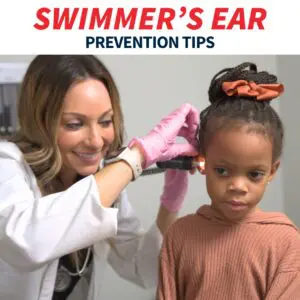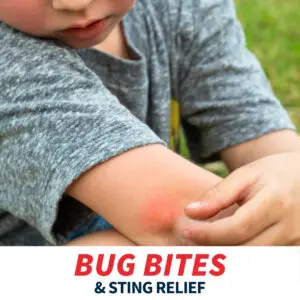Coronavirus: What You Need to Know
 Over the past several weeks, news of a coronavirus from Wuhan, China has been spreading throughout the world. While the spread of the coronavirus is not to be taken lightly, it is important to look at the facts to help stop the spread of misinformation.
Over the past several weeks, news of a coronavirus from Wuhan, China has been spreading throughout the world. While the spread of the coronavirus is not to be taken lightly, it is important to look at the facts to help stop the spread of misinformation.
What is a Coronavirus?
According to ScienceAlert, “Coronaviruses are a family of viruses known for containing strains that cause potentially deadly diseases in mammals and birds.” Much like other viruses and illnesses, they typically spread on airborne fluid droplets from an infected person. Previous coronaviruses have included severe acute respiratory syndrome (SARS) and Middle East respiratory syndrome (MERS). In most cases, patients infected with a coronavirus would simply experience symptoms similar to a bad cold, with upper respiratory issues like a runny nose and sore throat.
What Makes the Wuhan Coronavirus Different?
The Wuhan coronavirus, also known as the 2019 Novel Coronavirus, is a newly-identified strain. The concern surrounding this particular virus stems mostly from the fact that it has not been previously identified and scientists are learning more as it continues to spread. Most likely, the virus began from an infected animal, but is now beginning to spread person-to-person. Unfortunately, authorities are still unclear as to how easily the virus can be spread to others, so extra caution around those who are sick or who have traveled internationally is suggested. While not yet confirmed, based on other coronaviruses, the risk of catching the virus from products or packaging that has been shipped over a period of days or weeks is considered to be low.
Symptoms of the Wuhan Coronavirus
In patients that have been confirmed to have the 2019 coronavirus, symptoms were varied. Some experienced little to know symptoms while others became severely ill and died. Symptoms that could indicate coronavirus include fever, cough, and shortness of breath. Symptoms may appear anywhere from 2-14 days after exposure. If you develop symptoms and have been around someone with coronavirus, or have recently been to China, contact your doctor right away. Be sure to call ahead and discuss your symptoms and possible exposure with your doctor to decide if you should be tested to avoid potentially infecting others.
Treatment of Coronavirus
For those who may be infected with coronavirus, call your doctor right away. Calling ahead will help the doctor take proper precautions to keep others from getting infected. Treatment is essentially limited to managing and relieving associated symptoms, or helping to support vital organ functions in severe cases. Should you be confirmed to have coronavirus, it is extremely important to do what you can to prevent spreading the virus to others.
- Stay Home. Don’t go anywhere outside of your home unless it is for medical care. Stay away from work, school, public areas, and any public transportation.
- Keep Away from Others. If there are others living in your home, keep yourself away as much as possible. Stay in a different room at all times and, if possible, use a completely separate bathroom.
- Wear a Facemask. If you are in a room with others or need to go out to the doctor, wear a facemask. If there is an issue preventing you from wearing a facemask, be sure all of those around you wear one to protect themselves.
- Practice Good Hygiene. As always, thoroughly wash your hands and avoid touching your eyes, nose, and mouth. Also, do not share any household items, including dishes, drinking glasses, eating utensils, towels, bedding and more. Anything you have used should be washed thoroughly with soap and water.
- Monitor Symptoms. If your condition worsens, such as you have trouble breathing, seek medical attention. Again, be sure to call your provider ahead of time to avoid the potential spread of infection.
- Stay Away from Pets and Animals. Because coronaviruses can infect animals, it’s important to stay away from any pets in the home. This particular coronavirus has not been reported in other animals, but authorities do not yet have confirmation on how this may affect household pets.
Prevention of Coronavirus
As there is no current vaccine against the 2019 coronavirus, the best method of prevention is to avoid exposure. However, because the Centers for Disease Control and Prevention (CDC) is not yet sure on how the virus spreads, practicing healthy habits you would normally use to prevent the spread of viruses is recommended.
- Wash Your Hands. You should always wash your hands with soap and water for at least 20 seconds after using the restroom, before eating, and after blowing your nose, coughing or sneezing. If you do not have access to soap and water, use an alcohol-based hand sanitizer with at least 60% alcohol.
- Avoid Others who are Sick. Try to stay away from others when they are sick. If you must be around others who are ill, particularly in the medical field, consider wearing a facemask for extra protection.
Stay Informed
Because the investigation into the coronavirus is ongoing, it is important to stay up-to-date on any new information to keep you and your loved ones safe. The CDC offers comprehensive information about the spread of the virus as it becomes available, as well as tips and information about the Wuhan coronavirus. Our goal at Midwest Express Clinic is to ensure our communities are well informed about this and other health concerns. Should you have any questions or concerns about protecting your family’s health, contact us today.




